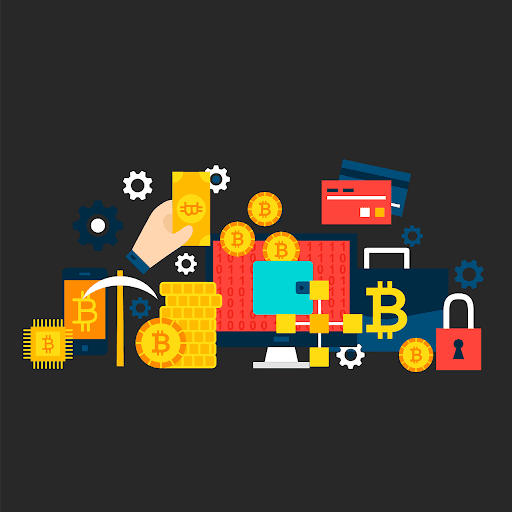Back in the day, you couldn’t buy some software because your bank blocked international payments, or the streaming service would reject your card because you lived in the “wrong” country – well, now, crypto has fixed all these problems. Today, Bitcoin and other assets can unlock thousands of online services that regular payment methods can’t even reach.
The change is real, though –Norwegian Air takes Bitcoin for flights, AMC Theatres accepts it for movie tickets, and Whole Foods lets you buy groceries with it through payment apps. So, we’re talking about 217 active crypto exchanges handling $2.3 trillion in monthly trades as of January 2025.
But what’s really important is that crypto payments cost pennies, while the banks charge 3-7% for international transfers. So, if you send $1k to a service in Japan, banks might take $70 out of it – but Bitcoin would maybe take only $2 for the same amount. Now, you can pay that Vietnamese cloud hosting provider that only accepts local payment methods directly with Ethereum.
VPN providers jumped on crypto payments early, and for good reason. NordVPN accepts more than 70 assets through CoinGate, while ExpressVPN takes Bitcoin via BitPay. Also, Surfshark processes everything from Dogecoin to Ethereum.
That way, you can get true anonymity – no credit card linking your real name to your VPN subscription, no bank statements showing privacy tool purchases. Just transfer the crypto, get your service, and stay private.
Online gaming platforms show crypto’s real power – and while regular casinos make you wait 3-5 business days for withdrawals, the ones using crypto take you less than 10 minutes. Some can even process payments at the same moment.
The bonuses are insane as well – we’re seeing welcome packages up to $30k, compared to maybe $1k at regular sites. Crypto expert Viola D’Elia has extensively reviewed the best crypto gaming sites in South Africa, explaining how they have game libraries surpassing 5,000 titles, impressively fast payouts, and zero transaction fees. South Africa’s situation is particularly interesting – while regular online gambling faces some tough restrictions, crypto casinos operate freely, giving players access to bigger bonuses and complete privacy.
Developers love what crypto brings to cloud services – Vultr and Kamatera accept Bitcoin for cloud servers, while Hostinger takes more than 70 different assets. But these are actually lifelines for many people in countries with such banking restrictions. Someone in Iran or Venezuela can suddenly access the same cloud infrastructure as someone in Silicon Valley – no questions asked, or barriers erected.
The domain sphere changed completely as well. Unstoppable Domains sold more than 700,000 blockchain domains that you actually own. No yearly fees, or any company can seize them – buy “yourname.crypto” once, own it forever. Plus, these domains double as wallet addresses. So, if someone wants to send you Bitcoin, they just send it to yourname.crypto instead of typing out 42 random characters. Regular domain registrars can’t compete with that level of ownership and functionality.
Educational platforms have turned to crypto, too – and now Coursera has many crypto courses with Bitcoin payment options, opening doors for learners in countries with restricted banking access. Well, that course you couldn’t access because PayPal doesn’t operate in your country, now seems like a piece of cake, as Bitcoin doesn’t care about borders.
Crypto removes all the barriers – for the hosting service that only accepts US credit cards, now Ethereum works fine. Also, the privacy tools your government doesn’t want you to have – crypto can help you bypass these restrictions. So, as Coinbase’s credit card launches in fall 2025, it’ll make crypto spending even easier and faster than ever before.
